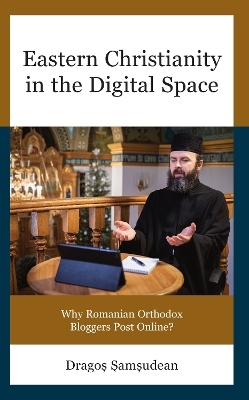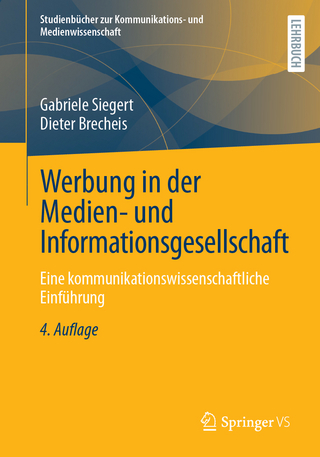
Eastern Christianity in the Digital Space
Why Romanian Orthodox Bloggers Post Online?
Seiten
2024
Lexington Books/Fortress Academic (Verlag)
978-1-6669-4241-5 (ISBN)
Lexington Books/Fortress Academic (Verlag)
978-1-6669-4241-5 (ISBN)
An inquiry on how one of the most conservative Christian faiths adapts to the digital technological realities, facing secularization and theories that portray religion as doomed to extinction. An atypical process for the hierarchical East-European Orthodoxy, in which believers, as Ortho-bloggers, set the norms of the digital Orthodoxy.
Existing through the ordeals of the Communist regimes of the last century and then facing the expansion of the Internet and the digitalization of the present one, East-European Orthodoxy seeks to re-establish itself on the geopolitical and religious map of today's world. Dragoș-Ioan Șamșudean argues that, within this context, new religious actors such as Ortho-bloggers, manifest themselves in the digital environment of blogs and social media, driven not only by spiritual and religious motivations but also by political, economic and institutional ones. Caught between the inabilities of the Orthodox Church to offer them a safe religious online framework to express themselves and their various personal and socio-political aspirations, Orthodox bloggers become religious influencers, theologians, but also promoters of disinformation and misinformation. Șamșudean chose Romania as a case study on Ortho-bloggers motivations, based on four characteristics of this state: the majority Orthodox population, a well-developed internet infrastructure, a local Orthodox Church active online and offline as well as the Geopolitical position of Romania, at the intersection of the clash between civilizations and cultures.
Existing through the ordeals of the Communist regimes of the last century and then facing the expansion of the Internet and the digitalization of the present one, East-European Orthodoxy seeks to re-establish itself on the geopolitical and religious map of today's world. Dragoș-Ioan Șamșudean argues that, within this context, new religious actors such as Ortho-bloggers, manifest themselves in the digital environment of blogs and social media, driven not only by spiritual and religious motivations but also by political, economic and institutional ones. Caught between the inabilities of the Orthodox Church to offer them a safe religious online framework to express themselves and their various personal and socio-political aspirations, Orthodox bloggers become religious influencers, theologians, but also promoters of disinformation and misinformation. Șamșudean chose Romania as a case study on Ortho-bloggers motivations, based on four characteristics of this state: the majority Orthodox population, a well-developed internet infrastructure, a local Orthodox Church active online and offline as well as the Geopolitical position of Romania, at the intersection of the clash between civilizations and cultures.
Dragoș Șamșudean is associate professor in the Department of International Studies and Contemporary History at the same University, in Cluj-Napoca, Romania.
| Erscheinungsdatum | 13.03.2024 |
|---|---|
| Reihe/Serie | Russian, Eurasian, and Eastern European Politics |
| Sprache | englisch |
| Maße | 158 x 237 mm |
| Gewicht | 526 g |
| Themenwelt | Geisteswissenschaften ► Religion / Theologie |
| Sozialwissenschaften ► Kommunikation / Medien ► Kommunikationswissenschaft | |
| Sozialwissenschaften ► Politik / Verwaltung ► Staat / Verwaltung | |
| ISBN-10 | 1-6669-4241-3 / 1666942413 |
| ISBN-13 | 978-1-6669-4241-5 / 9781666942415 |
| Zustand | Neuware |
| Informationen gemäß Produktsicherheitsverordnung (GPSR) | |
| Haben Sie eine Frage zum Produkt? |
Mehr entdecken
aus dem Bereich
aus dem Bereich
Eine Einführung
Buch | Softcover (2022)
Springer VS (Verlag)
CHF 39,15
Buch | Softcover (2024)
Springer Fachmedien (Verlag)
CHF 48,95


